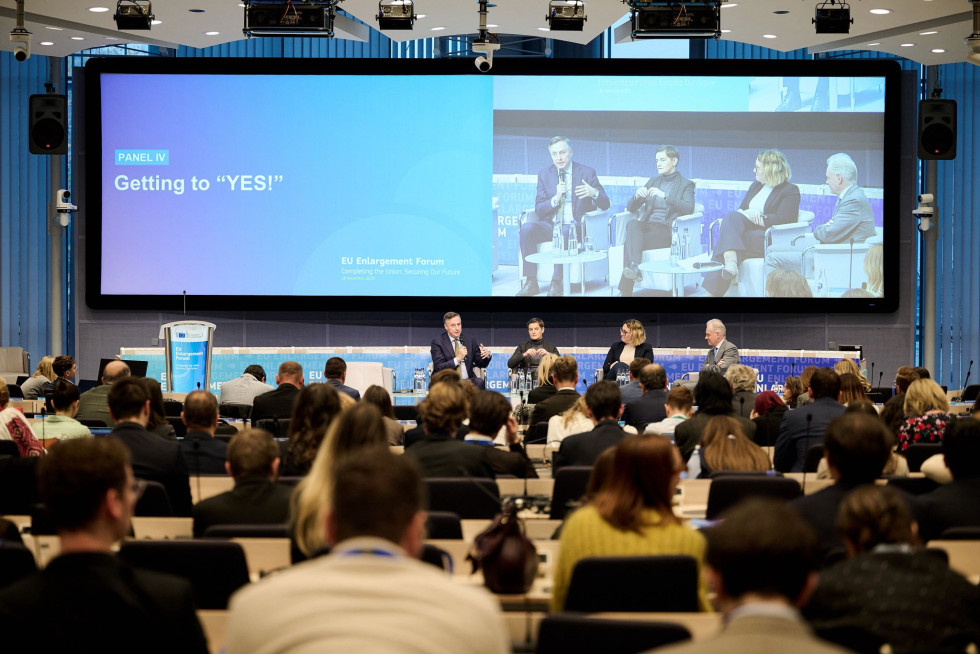State Secretary Grašič at the first EU Enlargement Forum: Slovenia would like to keep enlargement high on EU agenda

State Secretary Neva Grašič speaking on the panel | Author EU
The panel entitled "Getting to YES!" featured State Secretary Grašič, the Chair of the European Parliament's Foreign Affairs Committee, David McAllister, the President of the National Assembly of Serbia, Ana Brnabić, and the Senior Assistant Professor of International Relations and European Studies, Seda Gürkan. The discussion was moderated by Gert Jan Koopman, Director-General of the European Commission for Enlargement and Eastern Neighbourhood. After geopolitical necessity had once again placed EU enlargement at the centre of strategic debate, participants sought to answer the question of how to ensure the preparedness of both candidate countries and the EU for membership and enlargement. A key focus was on gaining and maintaining the support of citizens.
State Secretary Grašič recalled that the biggest EU enlargement, in 2004, had numerous positive effects for the new Member States, strengthening the EU economically and increasing its global influence. The key to Slovenia's successful integration was the broad political consensus resulting from the involvement of civil society, experts and politicians in keeping EU issues at the centre of public debate. Building on this positive experience, Slovenia has become one of the strongest supporters of the enlargement process.
The State Secretary congratulated the Albanian government on opening the last negotiating cluster, highlighting that Albania had opened all six negotiating clusters in less than fourteen months – an exceptional achievement that demonstrates its strong political will and determination, and that it is making significant progress in the EU accession process.
State Secretary Grašič emphasised that Slovenia views future enlargement comprehensively – as a strategic investment in the long-term security, stability and prosperity of Europe. To this end, it advocates a faster, more efficient, more credible and more predictable enlargement process. She mentioned the initiative launched by Slovenia, Italy, Germany and Austria to simplify the process, as well as the Slovenian-German initiative to use qualified majority voting in the EU Council to decide on the intermediate enlargement steps. This initiative has already gained the support of 15 Member States. Slovenia remains firmly committed to ensuring that the enlargement process remains achievement-based and that standards are not lowered.
The State Secretary also paid particular attention to young people in the Western Balkans. "We want to send a clear message to young people: European values – the rule of law, democracy, transparency and accountable institutions – are not just abstract principles, but concrete tools that can improve their daily lives," she emphasised. She added that the enlargement process is helping to build more resilient and inclusive societies, as well as strong and independent institutions: "Young people are the bearers of pro-European attitudes and key agents of change. They must be included in discussions on enlargement, and they must be made aware that the EU sees and hears them."
Finally, the State Secretary emphasised that successful enlargement requires strong political commitment from both Member States and candidate countries. This is the only way to ensure that enlargement remains a positive change and a process, in which we can achieve a final "YES" by joining forces.

